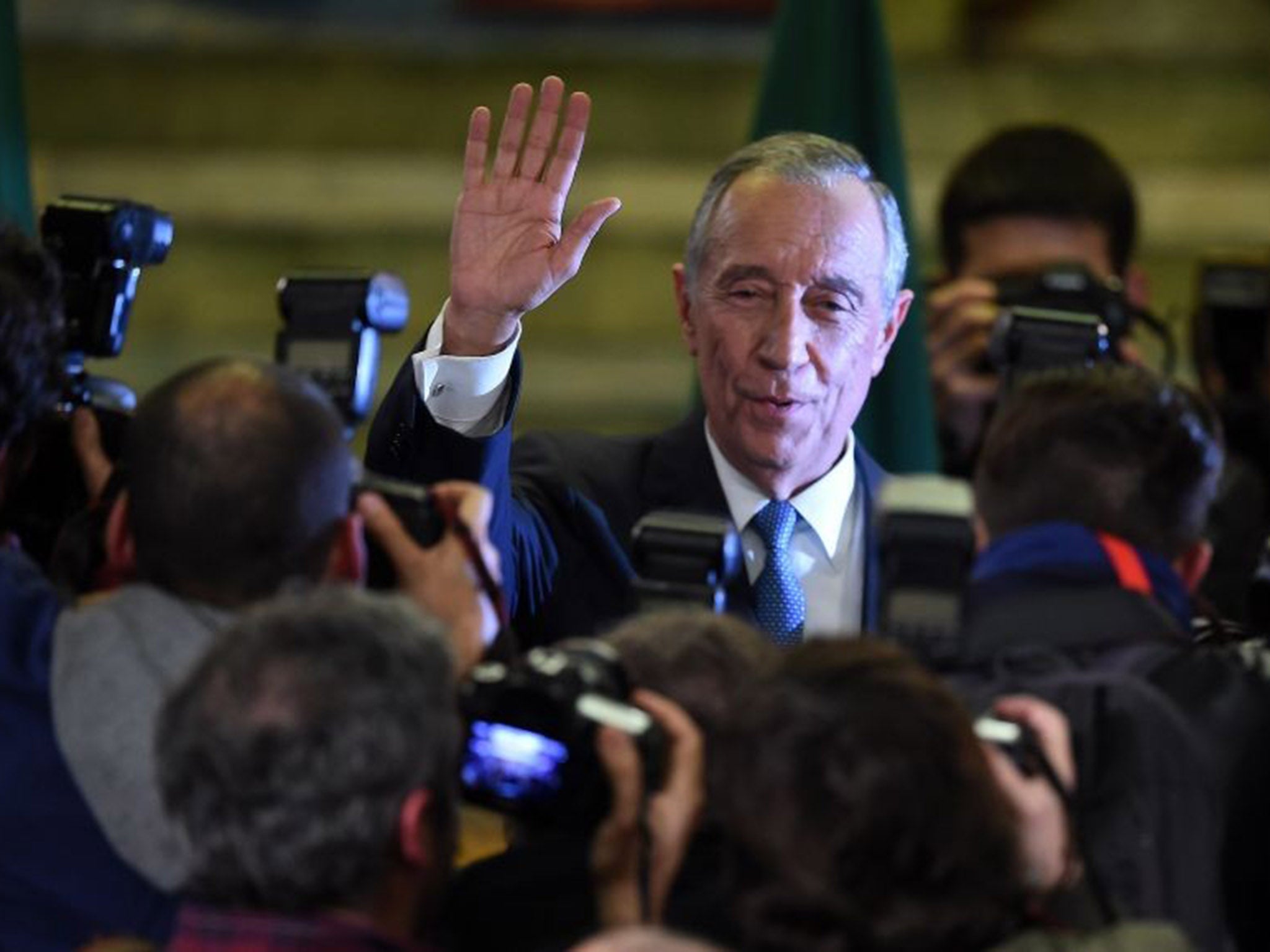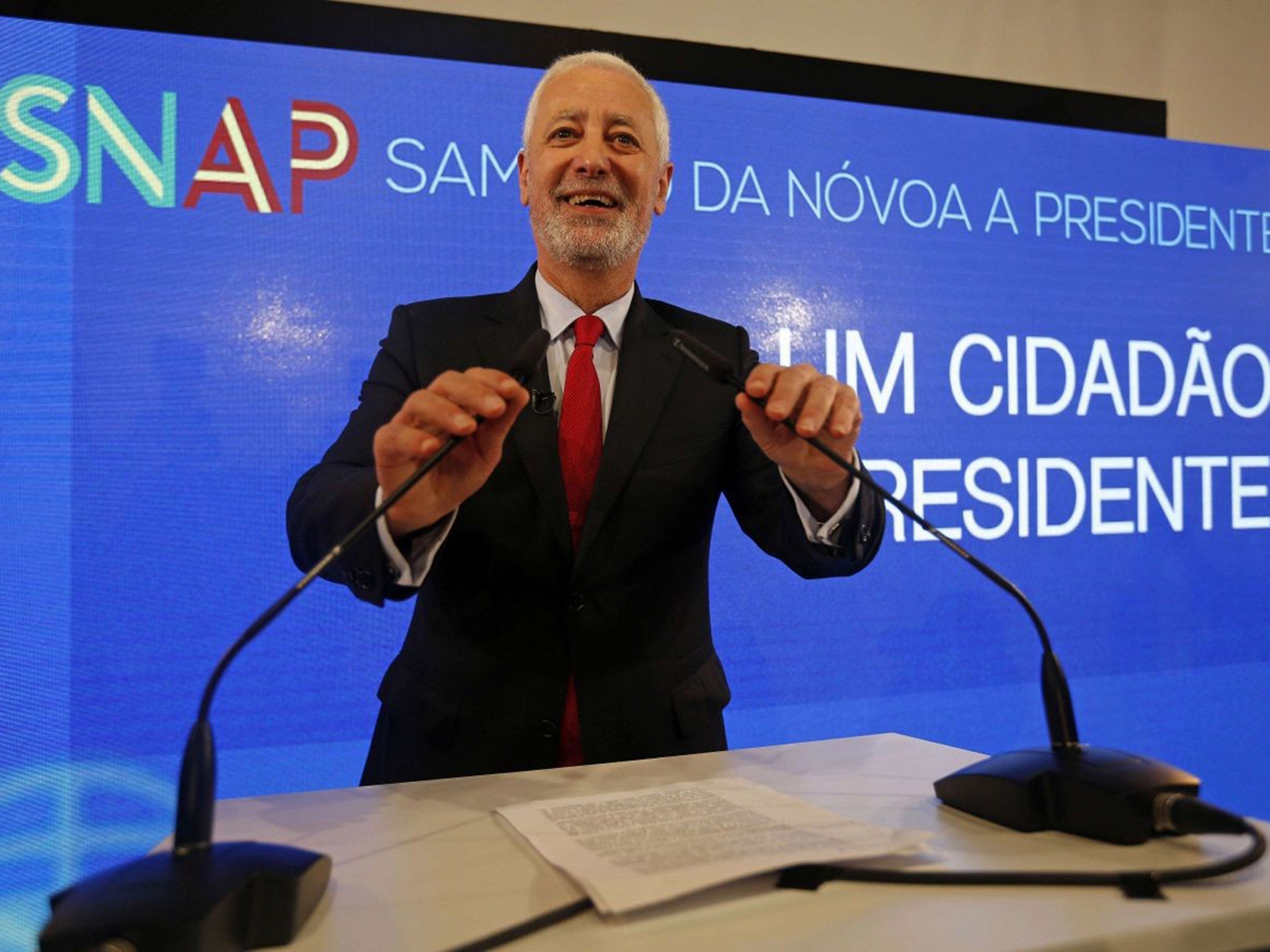Marcelo Rebelo de Souza wins resounding victory in Portuguese presidential elections
The centre-right candidate topped the poll with 52 per cent of the vote - avoiding a run-off

Centre-right candidate Marcelo Rebelo de Sousa won Portugal's presidential election on Sunday - despite a dramatic swing to the left in October's parliamentary ballot.
In his victory speech, Social Democrat Rebelo de Sousa, 67, said he will work to promote consensus and repair divisions created in the aftermath of the previous election when the left ousted a centre-right administration that imposed tough austerity under an international bailout in 2011-14.
Portugal's president is a largely ceremonial figure but he plays an important role at times of political uncertainty - as have gripped the country since last October's inconclusive parliamentary election. He has the power to dissolve parliament and fire the prime minister.
Portugal is likely to need all consensus possible as a shaky government of moderate centre-left Socialists dependent on far-left parties for support in parliament tries to reconcile its election pledges to end economic austerity with budget deficit cuts promised to the European Union.
With nearly all votes counted, preliminary results showed Rebelo de Sousa, a former journalist and one-time leader of the centre-right Social Democrats, winning 52 percent of the vote, enough to avoid a runoff.

His closest rival, Socialist Antonio Sampaio da Novoa, conceded defeat after picking up around 23 percent of the vote.
Left Bloc candidate Marisa Matias had 10 percent.
Many political analysts do not expect the Socialist-led government to serve a full four-year term and the new president could play a key role, either as mediator between the parties or using his power to dissolve parliament and call new elections.
Rebelo de Sousa will succeed President Anibal Cavaco Silva, a fellow conservative who said he only swore in the Socialist government as he was barred by the constitution from calling a new parliamentary election in his last six months in office.
The leftist parties have said Rebelo de Sousa may seek a return to unpopular right-wing economic policies, but he struck a conciliatory tone during his election campaign, saying Portugal needs "more social justice along with minimum financial equilibrium" - a stance similar to that of the Socialists.
Barely half of registered Portuguese voters cast their ballot in Sunday's election, though turnout was up slightly from the previous presidential poll in 2011.
Reuters
Join our commenting forum
Join thought-provoking conversations, follow other Independent readers and see their replies
Comments
Bookmark popover
Removed from bookmarks